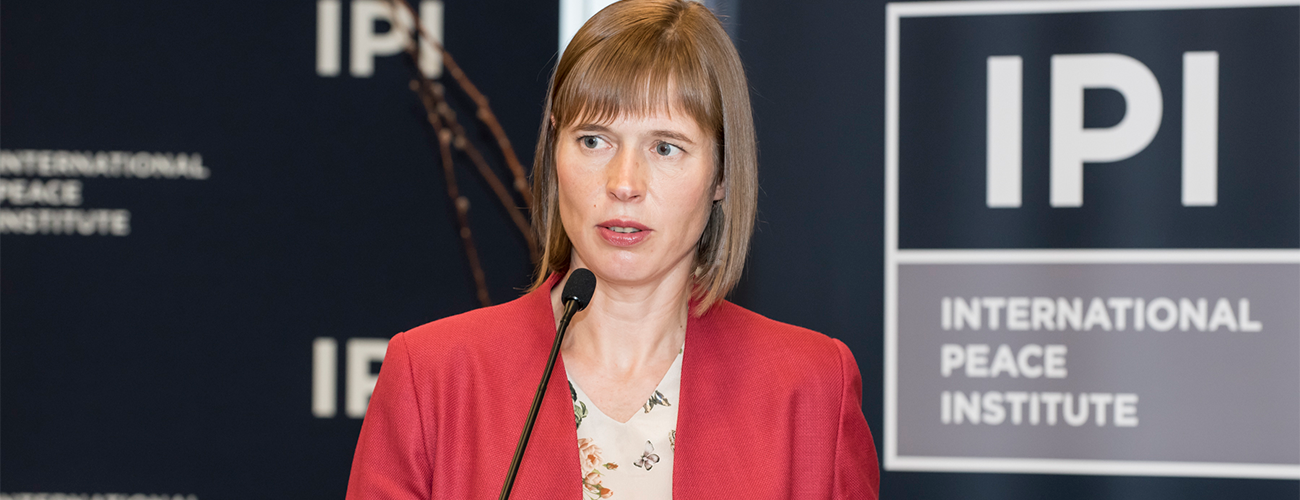How small states such as Estonia can find their niche in the global community was the subject of a presentation by Estonian President Kersti Kaljulaid, who was at IPI on July 13th for a Global Leaders Series event.
Estonia has certainly found its own unique success in the digital sphere. Citizens vote, pay taxes, and manage government services all online, earning the government a reputation as the most advanced digital society in the world.
“Digital Estonia is actually a demand by the Estonian people and the private sector, to us in the government,” President Kaljulaid told the IPI audience. The benefits of a digital society include more transparency and easier access to government services.
“The digital world is a real space—it is no longer just virutal,” she said.
The president acknowledged that the country’s technological progress was achieved through cooperation between the public and private sector.
“We do not try to have a couple of clever men form the strategy—we are much more inclusive,” she said, adding, “We recognize for it to benefit the whole of society, we need to involve all generations.”
This inclusivity, she said, is also critical for cybersecurity. Referring to the recent Wannacry digital attack, Ms. Kaljulaid reported that “nothing was affected” in her country because of a culture of old and young working together to maintain what she calls “cyber-hygiene”–a societal exercise that involves people, governments and businesses advocating for better awareness of how to remain safe online, rather than relying on the “tech police.”
Ms. Kaljulaid said this is another lesson the world can learn from Estonia’s progress in the digital world. “When people recognize that it’s not technology, but the brain, that keeps your safe, they will learn cyber-hygiene,” she added.
The president characterized inclusivity as a core consideration of a successful small state. “Democracy is not dependent on your GDP per capita. It is available to everybody, globally,” she said.
Illustrating her point, Ms. Kaljulaid held up Estonia as an example, saying, “In 25 years, Estonia has demonstrated that you can go from a country which was occupied by the Soviet Union to a country that the International Monetary Fund (IMF) classifies as ‘well-off.’”
It was from this perspective that President Kaljulaid strongly advocated for multilateralism, saying, “We don’t just believe in it, we thoroughly depend on it. We have an existential need for multilateral cooperation.”
Indeed, the president began her talk by acknowledging the challenges faced by small states in a world dominated by larger powers. “Doing our best, as a small state, is what we have to do to make an impact and survive,” she said. “A small country always has to spend proportionately more. In big countries, nobody notices or asks… We need to show tangible results.”
As a remedy for the obstacles before small states, President Kaljulaid recommended the approach of “contributing” when it comes to achieving goals on the global stage, rather than “consuming.” She said, “Small states must view the world as a puzzle where the only thing missing is your state’s wisdom.”
The event was co-hosted by the Permanent Mission of Estonia to the UN.
Adam Lupel, IPI Vice President, moderated the discussion.








